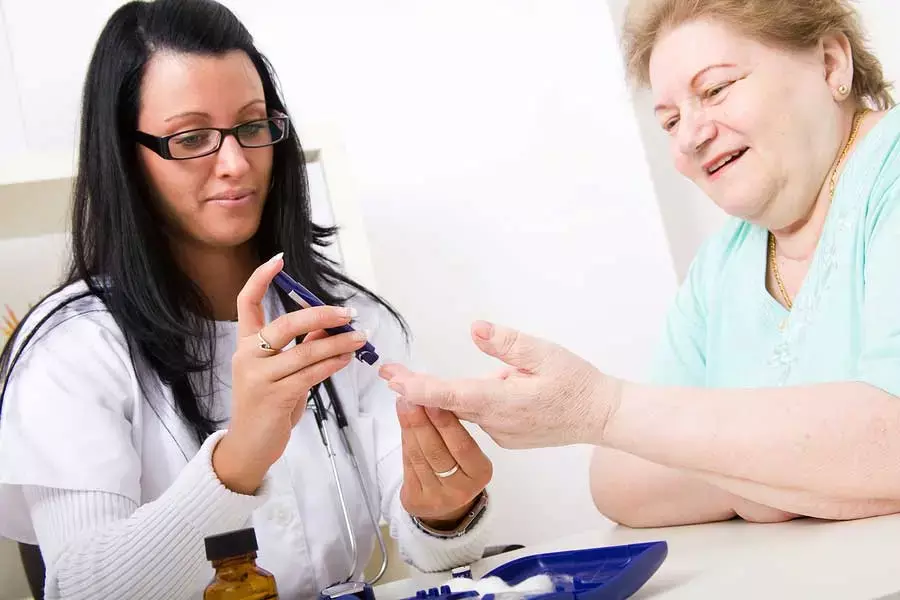- Home
- Medical news & Guidelines
- Anesthesiology
- Cardiology and CTVS
- Critical Care
- Dentistry
- Dermatology
- Diabetes and Endocrinology
- ENT
- Gastroenterology
- Medicine
- Nephrology
- Neurology
- Obstretics-Gynaecology
- Oncology
- Ophthalmology
- Orthopaedics
- Pediatrics-Neonatology
- Psychiatry
- Pulmonology
- Radiology
- Surgery
- Urology
- Laboratory Medicine
- Diet
- Nursing
- Paramedical
- Physiotherapy
- Health news
- Fact Check
- Bone Health Fact Check
- Brain Health Fact Check
- Cancer Related Fact Check
- Child Care Fact Check
- Dental and oral health fact check
- Diabetes and metabolic health fact check
- Diet and Nutrition Fact Check
- Eye and ENT Care Fact Check
- Fitness fact check
- Gut health fact check
- Heart health fact check
- Kidney health fact check
- Medical education fact check
- Men's health fact check
- Respiratory fact check
- Skin and hair care fact check
- Vaccine and Immunization fact check
- Women's health fact check
- AYUSH
- State News
- Andaman and Nicobar Islands
- Andhra Pradesh
- Arunachal Pradesh
- Assam
- Bihar
- Chandigarh
- Chattisgarh
- Dadra and Nagar Haveli
- Daman and Diu
- Delhi
- Goa
- Gujarat
- Haryana
- Himachal Pradesh
- Jammu & Kashmir
- Jharkhand
- Karnataka
- Kerala
- Ladakh
- Lakshadweep
- Madhya Pradesh
- Maharashtra
- Manipur
- Meghalaya
- Mizoram
- Nagaland
- Odisha
- Puducherry
- Punjab
- Rajasthan
- Sikkim
- Tamil Nadu
- Telangana
- Tripura
- Uttar Pradesh
- Uttrakhand
- West Bengal
- Medical Education
- Industry
Poor blood sugar control before CABG Increases Mortality in diabetics: Study

Cardiovascular disease (CVD) is the leading cause of mortality for 17.5 million people in the world, which is about 30 per cent of the total mortality rate. The most important cardiac surgical procedure performed on diabetic patients is coronary artery bypass grafting surgery (CABG).
A recent study suggests that poor blood sugar control before CABG increases the risk of mortality and adverse events. The study findings were published in the European Journal of Cardio-Thoracic Surgery on May 10, 2021.
The concept of perioperative blood sugar control in cardiac surgery patients was conducted in many studies. The Society of Thoracic Surgeons published guidelines regarding blood glucose management during cardiac surgery, recommending maintenance of blood glucose <180 mg/dl utilizing an insulin infusion and maintaining the level to less than 150 mg/dl in high-risk cases. However, the optimal HbA1c level for patients with diabetes prior to CABG remains unclear. Therefore, Dr Salil Deo and his team conducted a study to evaluate the association of pre-operative glycated haemoglobin (HbA1c) and long-term outcome after isolated CABG.
The researchers analyzed the veteran data and included a total of 16 190 patients with diabetes and isolated CABG (2006–2018). They were divided into 4 groups (I: HbA1c <6.5%, II: HbA1c 6.5–8, III 8–10% and IV: HbA1c >10%). They used the multivariable Cox proportional hazards model to evaluate the association of pre-operative HbA1c and long-term survival and reported in hazards ratio (HR). They modelled the cumulative incidence of secondary end-points [myocardial infarction (MI) and repeat revascularization (percutaneous intervention)] for each group as competing events with cause-specific Cox proportional hazards models. The researchers reviewed the follow-up data of nearly 6 years.
Key findings of the study were:
- Upon analysis, they noted that the patients with HbA1c >10% were the youngest (mean age 60.9 years) and had high rates of Insulin dependence (78%).
- In patients with HbA1c >10%, they observed improvements of levels in 76%.
- Further, they found that pre-operative HbA1c > 8% is associated with the increased risk of mortality and adverse cardiac events in patients undergoing CABG.
- They wrote, "Compared to patients with HbA1c <8%, HbA1c 8–10% and >10% were associated with increased MI (HR 1.24 and HR 1.39, respectively) and need for reintervention (HR 1.20 and HR 1.24, respectively)."
The authors concluded, "In patients undergoing CABG, pre-operative HbA1c >8% is associated with the increased risk of mortality and adverse cardiac events."
For further information:
Medical Dialogues Bureau consists of a team of passionate medical/scientific writers, led by doctors and healthcare researchers. Our team efforts to bring you updated and timely news about the important happenings of the medical and healthcare sector. Our editorial team can be reached at editorial@medicaldialogues.in.
Dr Kamal Kant Kohli-MBBS, DTCD- a chest specialist with more than 30 years of practice and a flair for writing clinical articles, Dr Kamal Kant Kohli joined Medical Dialogues as a Chief Editor of Medical News. Besides writing articles, as an editor, he proofreads and verifies all the medical content published on Medical Dialogues including those coming from journals, studies,medical conferences,guidelines etc. Email: drkohli@medicaldialogues.in. Contact no. 011-43720751


